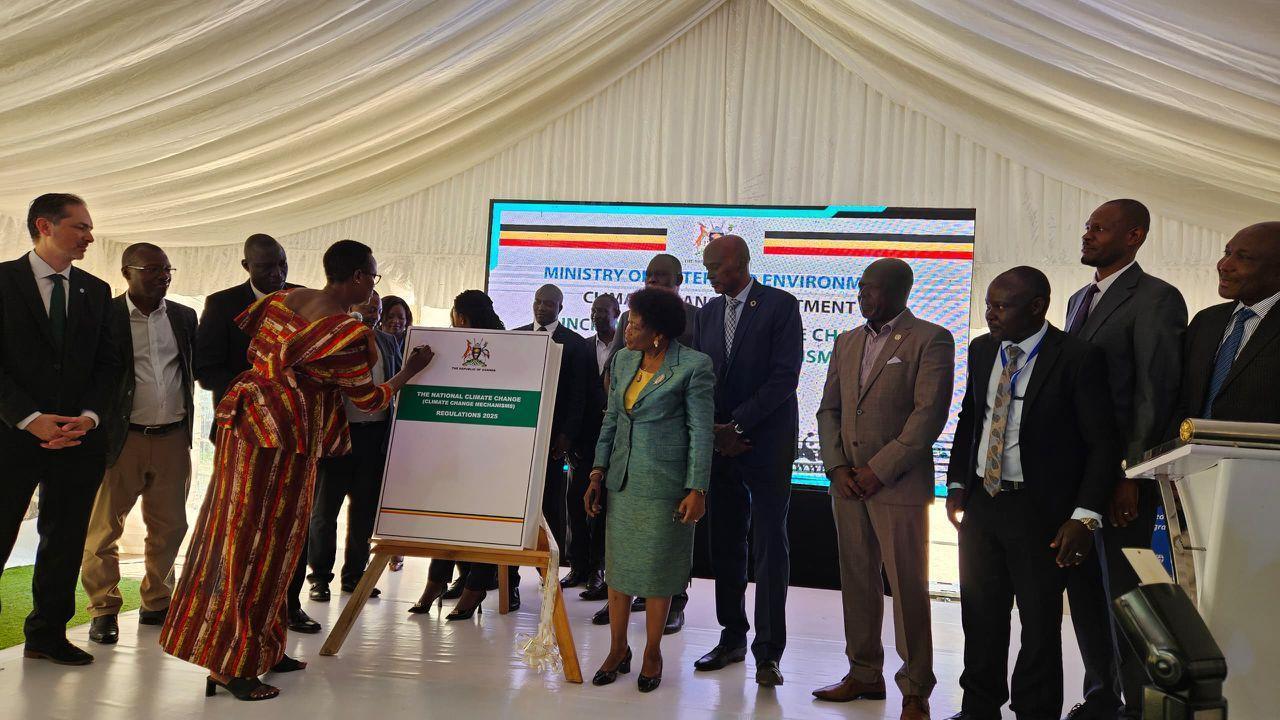Africa-Press – Uganda. Experts have said Uganda’s participation in carbon markets will help to generate revenue through the sale of carbon credits and facilitate financing of national climate priorities.
This follows the official launch of the National Climate Change (Climate Change Mechanisms) Regulations, 2025, by the Ministry of Water and Environment in Kampala.
The regulations provide a legal framework to guide the country’s entry into global carbon markets under the National Climate Change Act, Cap 182.
Aisha Sekindi, Minister of State for Water and Environment, described the regulations as a “landmark step” toward structured and transparent participation by both public and private sectors in carbon trading.
“This is a valuable opportunity for Uganda to mobilize climate finance through the sale of carbon credits, which can then be reinvested into renewable energy, agriculture, forestry, transport, and community development,” Sekindi said.
Carbon markets are trading systems where carbon credits representing reduced or removed greenhouse gas emissions are bought and sold. Uganda’s participation is expected to attract investment in climate-friendly technologies and strengthen private sector involvement in green growth.
The regulations, gazetted on January 24, 2025, operationalise sections 8, 9, 12, and 29 of the Climate Change Act.
They emphasise environmental integrity, transparency, and sustainable development, aligning Uganda’s efforts with global best practices under the Paris Agreement.
David Okurut, Acting Director for Environment Affairs at the ministry, said the framework would unlock new opportunities for local projects to benefit from international climate finance, while boosting accountability and capacity-building across stakeholders.
To support implementation, Sekindi announced the development of a national digital carbon registry that will enable real-time tracking, reporting, and oversight of carbon market activities.
However, she acknowledged that the fees prescribed in the regulations have not yet been integrated into the Uganda Revenue Authority (URA) system.
“We are working closely with the Ministry of Finance to finalise the integration process. Meanwhile, Uganda has requested access to the UNFCCC International Carbon Registry as a transitional measure,” she noted.
Representatives from UNDP, academia, and civil society welcomed the move, describing it as a progressive step that could position Uganda as a regional leader in climate financing.
The ministry pledged to ensure equitable benefit-sharing, local capacity enhancement, and private sector engagement as it rolls out the regulatory framework.
The launch comes at a time when African countries are seeking innovative ways to fund their climate ambitions. Uganda’s entry into carbon markets is expected to play a central role in mobilising resources for its national climate goals.
For More News And Analysis About Uganda Follow Africa-Press






